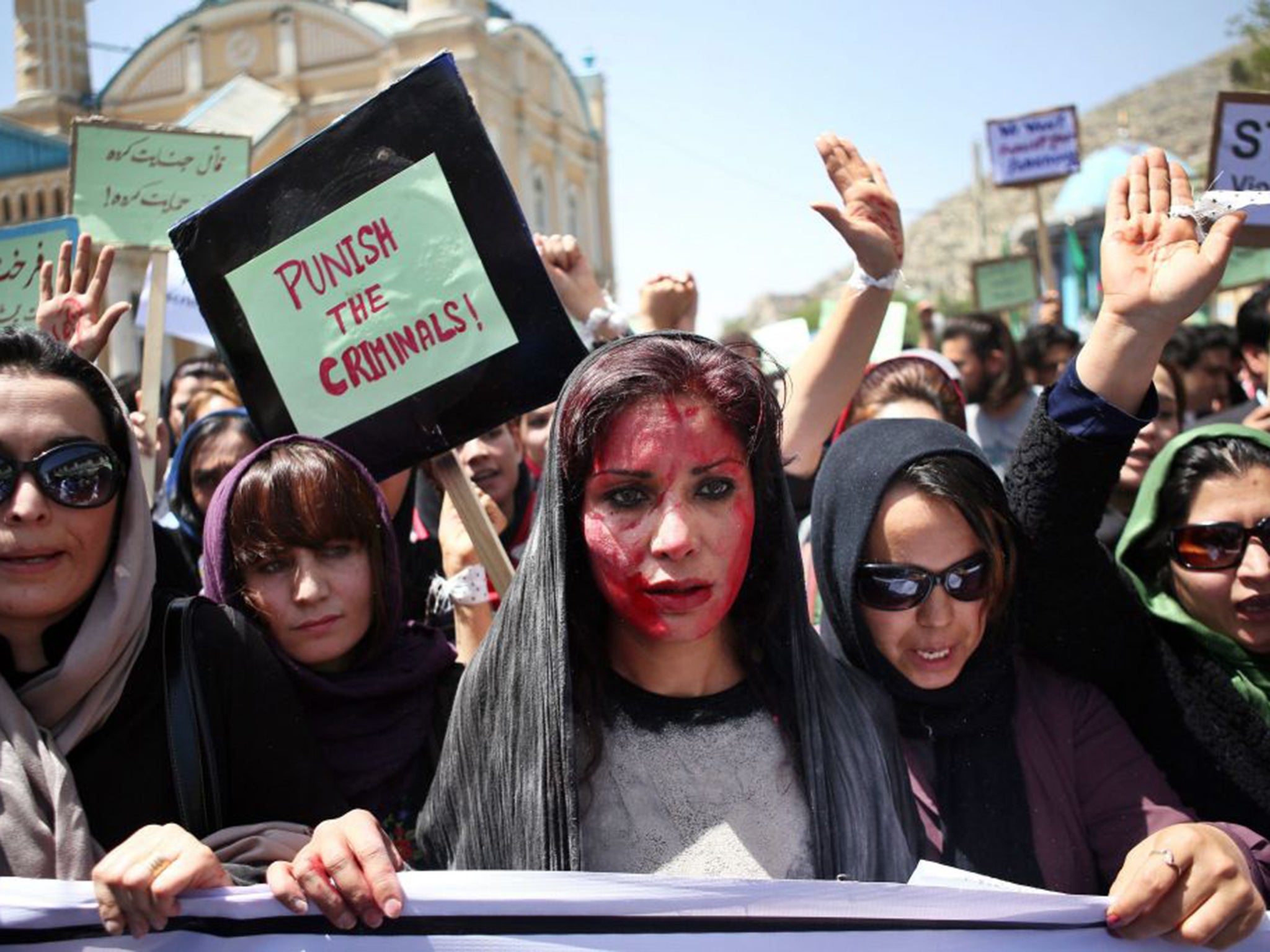Dozens of Afghan men on trial for mob killing of woman accused of burning Koran
The opening of the trial, which is expected to last two days, at Afghanistan’s Primary Court, in Kabul, was broadcast live on nationwide television

Your support helps us to tell the story
From reproductive rights to climate change to Big Tech, The Independent is on the ground when the story is developing. Whether it's investigating the financials of Elon Musk's pro-Trump PAC or producing our latest documentary, 'The A Word', which shines a light on the American women fighting for reproductive rights, we know how important it is to parse out the facts from the messaging.
At such a critical moment in US history, we need reporters on the ground. Your donation allows us to keep sending journalists to speak to both sides of the story.
The Independent is trusted by Americans across the entire political spectrum. And unlike many other quality news outlets, we choose not to lock Americans out of our reporting and analysis with paywalls. We believe quality journalism should be available to everyone, paid for by those who can afford it.
Your support makes all the difference.Dozens of Afghan men, including a number of police officers, faced trial on charges relating to the mob killing of a 27-year-old woman accused of burning the Koran.
The opening of the trial, which is expected to last two days, at Afghanistan’s Primary Court, in Kabul, was broadcast live on nationwide television.
On 19 March, a frenzied crowd had beaten and kicked the woman, named Farkhunda, to death, and set her body on fire near a shrine in central Kabul.
The attack was captured via a mobile-phone video which was distributed online, mainly through social-media. It showed Farkhunda, who like many Afghans went by only one name, being beaten, run over by a car and burnt, before her body was thrown into the Kabul river.
At the trial, a prosecutor read charges against 10 defendants – although reports said there were 49 suspects in the courtroom. Charges included assault, murder and encouraging others to participate. The policemen are charged with neglecting their duties and failing to prevent the attack, but some are suspected of taking part.
The incident sparked large demonstrations calling for justice. Some in the country see the killing as a defence of Islam, but many others were outraged at the viciousness of the attack even before an investigation showed that Farkhunda had been falsely accused of desecrating the Koran.
Several protests over violence against women sprang up in the capital, including one in the past week that re-enacted the attack.
Under the Taliban regime, which was ousted by a US-backed military intervention in 2001, women’s rights were curtailed; they were not allowed to leave home without a male guardian and were denied education.
Women’s rights were enshrined in the country’s constitution after the Taliban were pushed out, but most of Afghan society remains deeply conservative. A recent report from the UN Assistance Mission in Afghanistan also said the authorities needed to do more to improve access to justice for women who had been victims of violence. Reuters; AP
Join our commenting forum
Join thought-provoking conversations, follow other Independent readers and see their replies
Comments